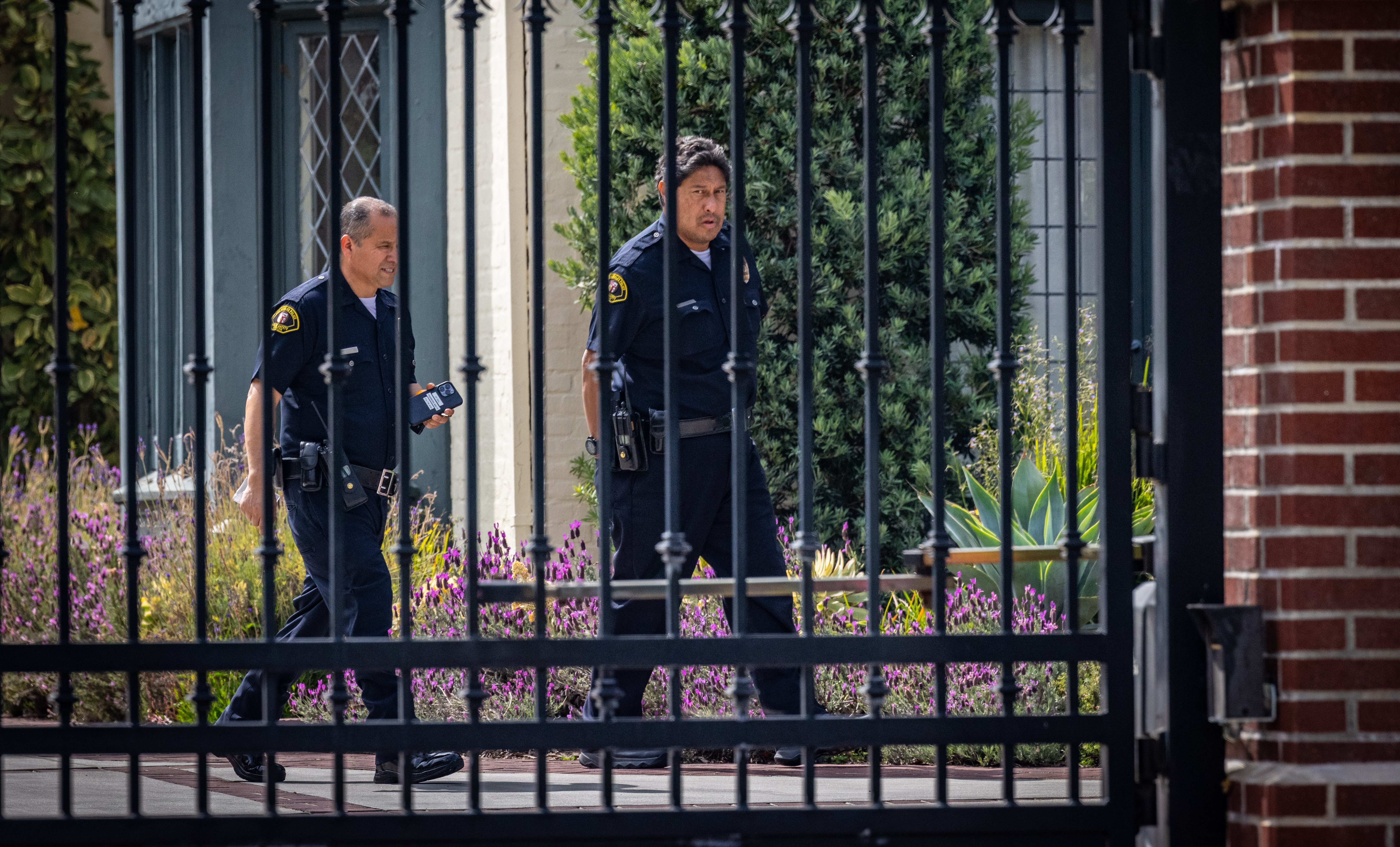The Department of Water and Power's water rationing program was blamed Tuesday for the rash of water main breaks last summer that damaged several homes and businesses and created a massive sinkhole that nearly swallowed a fire truck.
The finding was announced by Jean-Pierre Bardet, chairman of USC's Civil and Environmental Department, who led a team of experts in investigating the water main breaks.
They determined that the DWP's mandatory water conservation program created drastic changes in water pressure that put stress on corroded cast-iron pipes.
Bardet said the panel concluded that banning residents from turning on their sprinklers except for a few hours on Mondays and Thursdays was a major factor in the 101 water main breaks reported from last July through September -- double the normal number for that time period.
"We are only allowed to water lawns on Mondays and Thursdays, so what happened was everybody was watering their lawns on these two days and the water pressure dropped," Bardet said.
"As a result, we submitted our pipes to more cycles of water pressure. In other words, the maximum water pressure did not change, but the minimum did. And this cyclic pressure created fatigue (on corroded pipes)."
Testifying before the City Council's Energy and the Environment Committee on Tuesday afternoon, Bardet recommended changing the schedule of the water rationing so that residents with odd-numbered homes water their lawns on a different day than residents with even-numbered homes.
Local
Get Los Angeles's latest local news on crime, entertainment, weather, schools, COVID, cost of living and more. Here's your go-to source for today's LA news.
"If we do a more even distribution of water usage, it will decrease the pressure drops and then it would decrease the big stress variation on the pipes and will reduce the breaks," he said.
Bardet warned that unless the water pressure becomes more consistent, more blow-ups can be expected this summer.
"When you create sudden variations like we've done with the water rationing, then all the pipes which were supposed to fail ... failed. So you create a rash," he said. "Usually, the good thing about that is after the rash, you have a period of calm. When the summer comes, then you get again the surge the rash of pipes breaking."
Bardet also recommended that the DWP implement an aggressive program to replace brittle pipes, and use high-tech devices such as ground-penetrating radar to detect small leaks before they turn into "geysers."
DWP spokesman Joseph Ramallo said the utility had yet to analyze the findings of Bardet's team.
"DWP's internal investigation explored current water restrictions as a possible factor. However, our investigation found the data on the effects of outdoor water restrictions to be inconclusive," Ramallo said.
"The data on case iron pipe corrosion proved far more compelling and definitive," he said. "The department believes corrosion is the indisputable and primary factor in most of our water main breaks, including those from last September. We believe Dr. Bardet's findings will support this position."
Ramallo added, "It is the department's position that the operational changes to accommodate the City Trunk Line repairs resulted in ruptures on mostly cast-iron mains, which accounts for the increased severity of the breaks in the weeks that followed."
He also said the DWP averages 19.85 leaks and breaks per 100 miles of pipe -- well below the national average of 25 leaks and breaks per 100 miles of pipe.
Bardet's testimony came hours after the DWP issued a statement saying its mandatory water conservation program, which has been in place since last June, prompted Angelenos to cut their water use by nearly 30 billion gallons -- enough to serve 231,000 households for a year.
The DWP reported that Angelenos' water use in February matched 1979 levels.
Also Tuesday, the City Council's Energy and the Environment Committee heard testimony about proposals to have the DWP come under the oversight of ratepayer advocate, inspector-general and/or ombudsman. It directed staff to report on the pros and cons of each proposal within a month.



